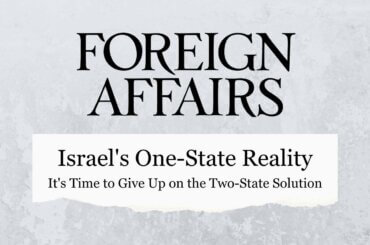(Alex Kane picked this up.) Robert Mackey of the Times is using his noggin.
In light of the continuing effort by negotiators to settle on a map that satisfies both Israelis and Palestinians, it is interesting that what Gandhi and Buber apparently did agree on was their opposition to the essential logic of what is now called the “two-state solution,” the concept that partitions drawn along ethnic or religious lines would eventually resolve conflicts between Hindus and Muslims in South Asia and Muslims and Jews in the Middle East. As Mr. Mishra pointed out, “This post-imperial imperative of the nation-state was anathema to Gandhi, who saw India as host to many communities whose overlapping cultural identities could not be regimented into a single religion or ethnicity.”
From the perspective of 2010, it is easy to dismiss Gandhi and Buber — and contemporary activists who still advocate a one-state solution — as idealists, but, after six decades of violence following the partition of India that created Pakistan, and the still-to-be-completed partition of Palestine that created Israel, the idea that any amount of force will soon create two peaceful states in either part of the world is also looking less convincing by the day.
The beauty of this post is that Mackey is an American Everyman and he is asking the same Everyman questions that were asked 63 years ago– when the State Department said that Partition could only be established by force and preserved by force. And now, after 63 years of a promised Palestinian state, and no political representation, and endless Israeli expansion, why should Americans nod their heads when they hear the words "peace process"? For all the battles between India and Pakistan, the Pakistanis are no longer stuck in a national struggle. No, they got their state.

